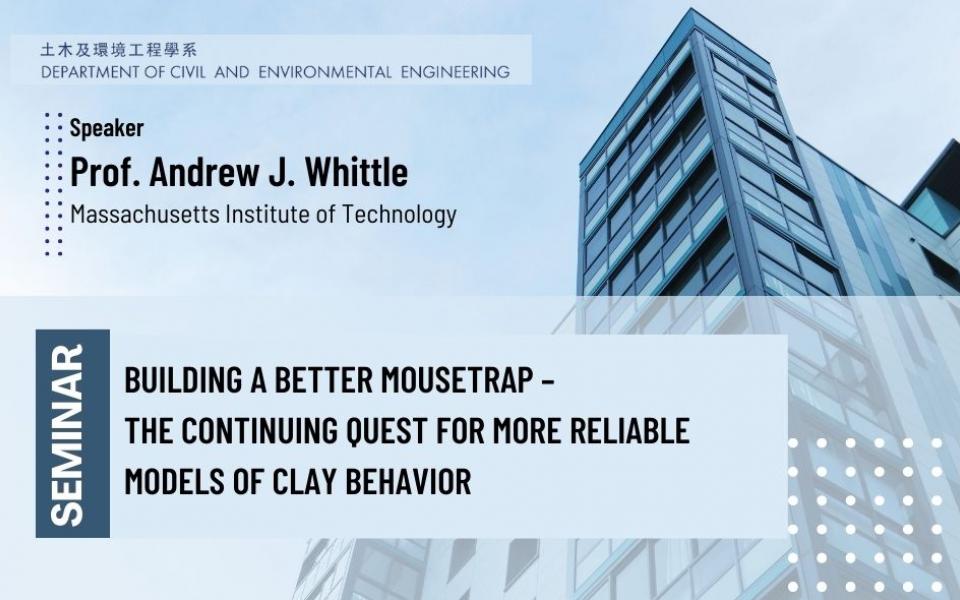Civil Engineering Departmental Seminar - Building a Better Mousetrap – The Continuing Quest for More Reliable Models of Clay Behavior
Supporting the below United Nations Sustainable Development Goals:支持以下聯合國可持續發展目標:支持以下联合国可持续发展目标:
Building a Better Mousetrap – The Continuing Quest for More Reliable Models of Clay Behavior
Extensive prior research has shown that advances in modeling complex aspects of clay behavior, from non-linear deformation and anisotropic shear properties, can enable more reliable predictions in practical geotechnical applications (from foundations to tunnels). Much of this work has been achieved using the prevailing paradigm of elasto-plasticity and conceptual framework of critical state soil behavior for clay sediments. This lecture compares and contrasts recent research to advance predictive capabilities in modeling the rate dependent behavior of clays and in simulating the behavior of residual soils.
There are many (often contradictory) observations of the viscous properties of sedimentary clays, and there is a long-standing dilemma regarding the coupling of creep and consolidation processes. We have addressed these issues through a formulation that introduces a physically-based evolution law that attributes the macroscopic viscoplastic strain rate to an internal variable associated with the prior strain rate history. By varying the rate-sensitivity parameter the proposed model provides a unified framework that can describe a wide range of observed time-effects in 1-D compression and shear behavior.
Residual soils are formed through in-situ physical and chemical weathering processes. Our experimental investigations of Old Alluvium led to a conceptual model of its complex microstructure and degradation under mechanical stress. Using heuristic reasoning we have described these transitions using Cation Exchange Capacity as an internal state variable and are able to develop a consistent model to explain transitions of engineering properties within the weathered soil profile.
Prof. Whittle earned the B.Sc. (Eng.) (1st Class) from Imperial College in 1981 and was awarded the Skempton Prize in Soil Mechanics. He worked as a senior engineering management trainee for Western Region of British Railways before moving to the US to pursue graduate studies at MIT supported by a John F. Kennedy Scholarship (1982-1984). He joined the MIT faculty in 1988, was tenured in 1995, and promoted to full Professor in 2000. From 2009 – 2013, he served as Head of the Department of Civil and Environmental Engineering.
Prof. Whittle is Co-Editor of the International Journal of Numerical and Analytical Methods in Geomechanics. He has served on an Independent Expert Panel for the Chief Executive of Hong Kong examining the delay in the works of the Hong Kong section of the Guangzhou-Shenzhen-Hong Kong Express Rail Link.
Prof. Whittle has received numerous awards from the ASCE, including the Casagrande Award (1994), the Croes Medal (1994), Middlebrooks Prize (1997, 2002, and 2005) and Huber Research Award (1998). In 2010 he was elected to the US National Academy of Engineering.
